Travel and Tourism Management is your gateway to an exciting career in one of the world’s most dynamic industries, and SIXT.VN is here to help you navigate it. This field combines business savvy with a passion for exploration, offering diverse opportunities in Vietnam and beyond. With SIXT.VN, planning your Vietnamese adventure becomes seamless, unlocking unforgettable experiences. Whether you’re interested in sustainable tourism, destination marketing, or hotel management, a solid foundation in travel and tourism management opens doors to a rewarding future.
1. What Does Travel and Tourism Management Encompass?
Travel and tourism management is the oversight of all aspects of the tourism industry. It involves planning, developing, and managing tourist destinations and services. This field includes everything from transportation and accommodation to entertainment and activities, all designed to provide memorable experiences for travelers.
According to the World Tourism Organization (UNWTO), tourism accounts for approximately 10% of global GDP and employs millions worldwide. Effective management ensures sustainable growth and positive impacts on local communities.
1.1. Key Components of Travel and Tourism Management
Understanding the core components is crucial for anyone considering a career or business in this sector.
- Destination Management: Developing and promoting tourist destinations, ensuring they are attractive and sustainable.
- Hospitality Management: Managing hotels, resorts, restaurants, and other accommodation and food service facilities.
- Transportation Management: Overseeing transportation services, including airlines, cruise lines, and ground transportation.
- Tour Operations: Planning and executing tours and travel packages.
- Marketing and Promotion: Promoting tourism products and destinations to attract visitors.
1.2. The Role of Technology in Modern Tourism Management
Technology has revolutionized the travel industry. Online booking platforms, mobile apps, and digital marketing have transformed how people plan and experience travel.
- Online Booking Systems: Platforms like Booking.com and Expedia have made it easier for travelers to find and book accommodations and activities.
- Mobile Apps: Apps provide travelers with real-time information, navigation, and personalized recommendations.
- Data Analytics: Analyzing data to understand travel trends and customer preferences helps businesses tailor their offerings.
1.3. Sustainability in Travel and Tourism Management
Sustainable tourism is increasingly important as travelers become more aware of the environmental and social impacts of their trips.
- Eco-Tourism: Focuses on responsible travel to natural areas, conserving the environment and improving the well-being of local people.
- Responsible Tourism: Aims to minimize negative impacts on the environment and local communities while maximizing economic benefits.
- Community-Based Tourism: Involves local communities in the planning and management of tourism, ensuring they benefit directly.
2. What are the Key Responsibilities in Travel and Tourism Management?
Professionals in this field wear many hats, ensuring seamless and enjoyable experiences for tourists while promoting sustainable growth.
2.1. Planning and Development
One of the primary responsibilities is planning and developing tourism products and services.
- Market Research: Identifying target markets and understanding their needs and preferences.
- Product Development: Creating new tourism products and experiences that meet market demands.
- Infrastructure Development: Developing the necessary infrastructure, such as hotels, roads, and airports, to support tourism.
2.2. Marketing and Promotion Strategies
Effective marketing is essential to attract tourists to a destination or business.
- Digital Marketing: Using online channels, such as social media, search engines, and email, to reach potential travelers.
- Content Creation: Developing engaging content, such as blog posts, videos, and infographics, to showcase destinations and experiences.
- Public Relations: Building relationships with media and influencers to generate positive coverage.
2.3. Operational Management
Managing day-to-day operations is crucial for delivering high-quality service.
- Customer Service: Ensuring excellent customer service at all touchpoints, from booking to on-site experiences.
- Staff Training: Training staff to provide knowledgeable and friendly service.
- Quality Control: Monitoring and maintaining standards of quality to ensure customer satisfaction.
2.4. Financial Management
Sound financial management is vital for the sustainability of tourism businesses.
- Budgeting: Developing and managing budgets to control costs and maximize revenue.
- Pricing Strategies: Setting competitive prices that attract customers while ensuring profitability.
- Revenue Management: Using data and analytics to optimize pricing and inventory management.
3. What are the Benefits of Studying Travel and Tourism Management?
A degree in travel and tourism management can open doors to a wide range of exciting and rewarding career opportunities.
3.1. Diverse Career Paths
Graduates can pursue careers in various sectors of the tourism industry.
- Hotel Management: Managing hotels, resorts, and other accommodation facilities.
- Tour Operations: Planning and leading tours, creating itineraries, and managing logistics.
- Event Management: Organizing conferences, festivals, and other events.
- Destination Marketing: Promoting destinations to attract tourists.
- Travel Agencies: Assisting clients with travel planning and bookings.
3.2. Global Opportunities
Tourism is a global industry, offering opportunities to work in different countries and cultures.
- International Hotel Chains: Working for international hotel brands with properties around the world.
- Global Tour Operators: Joining tour operators that offer trips to various destinations.
- Tourism Boards: Working for national or regional tourism boards to promote tourism in a specific area.
3.3. Personal Development
Studying travel and tourism management can enhance personal skills and qualities.
- Communication Skills: Developing strong communication skills to interact with people from diverse backgrounds.
- Problem-Solving Skills: Learning to solve problems and make decisions in challenging situations.
- Intercultural Competence: Gaining an understanding of different cultures and customs, enhancing the ability to work effectively in diverse teams.
3.4. Industry Growth Potential
The tourism industry is expected to continue growing in the coming years, creating new opportunities for skilled professionals.
- Increased Demand: As the global population grows and disposable incomes rise, more people are traveling for leisure and business.
- Emerging Markets: New destinations are emerging, offering opportunities for tourism development and investment.
- Technological Advancements: Technology is creating new ways to experience travel, driving innovation and growth in the industry.
4. How Can SIXT.VN Enhance Your Travel Experience in Vietnam?
SIXT.VN offers a range of services designed to make your trip to Vietnam seamless and enjoyable.
4.1. Airport Transfers
Arrive in Vietnam stress-free with SIXT.VN’s reliable airport transfer services.
- Convenient Booking: Book your airport transfer online in advance.
- Professional Drivers: Experienced and courteous drivers ensure a safe and comfortable journey.
- Wide Range of Vehicles: Choose from a variety of vehicles to suit your needs and budget.
4.2. Hotel Booking Assistance
Find the perfect accommodation with SIXT.VN’s hotel booking assistance.
- Extensive Network: Access to a wide range of hotels, from budget-friendly options to luxury resorts.
- Personalized Recommendations: Get recommendations based on your preferences and budget.
- Hassle-Free Booking: Let SIXT.VN handle the booking process for you.
4.3. Tour Packages
Explore Vietnam’s top destinations with SIXT.VN’s curated tour packages.
- Customizable Itineraries: Tailor your tour to your interests and preferences.
- Expert Guides: Knowledgeable guides provide insights into the history, culture, and attractions of each destination.
- Comprehensive Services: Tour packages include transportation, accommodation, and activities.
4.4. Visa Assistance
Navigate Vietnam’s visa requirements with SIXT.VN’s visa assistance services.
- Expert Guidance: Get advice on the visa application process and requirements.
- Document Preparation: Assistance with preparing the necessary documents for your visa application.
- Application Submission: SIXT.VN can submit your visa application on your behalf, saving you time and effort.
4.5. Local Transportation
Explore Vietnam with ease using SIXT.VN’s local transportation services.
- Car Rentals: Rent a car and explore at your own pace.
- Private Drivers: Hire a private driver for convenient and comfortable transportation.
- Motorbike Rentals: Experience Vietnam like a local by renting a motorbike.
5. What Skills Are Essential for Success in Travel and Tourism Management?
To excel in this dynamic field, certain skills are crucial for managing operations and providing exceptional customer experiences.
5.1. Customer Service Skills
Providing excellent customer service is paramount in the tourism industry.
- Empathy: Understanding and responding to customer needs and concerns.
- Communication: Communicating clearly and effectively with customers.
- Problem-Solving: Resolving customer issues quickly and efficiently.
- Patience: Remaining calm and professional in challenging situations.
5.2. Communication Skills
Effective communication is essential for interacting with colleagues, customers, and stakeholders.
- Verbal Communication: Speaking clearly and persuasively.
- Written Communication: Writing effective emails, reports, and marketing materials.
- Active Listening: Paying attention to and understanding the needs and concerns of others.
- Interpersonal Skills: Building rapport and maintaining positive relationships.
5.3. Leadership Skills
Leadership skills are necessary for managing teams and achieving organizational goals.
- Motivation: Inspiring and motivating team members to perform their best.
- Delegation: Assigning tasks effectively and empowering team members.
- Decision-Making: Making sound decisions based on available information.
- Conflict Resolution: Resolving conflicts and fostering a positive work environment.
5.4. Problem-Solving Skills
The ability to solve problems quickly and efficiently is essential in the fast-paced tourism industry.
- Analytical Skills: Analyzing information to identify the root cause of problems.
- Critical Thinking: Evaluating options and making informed decisions.
- Creativity: Developing innovative solutions to complex problems.
- Resourcefulness: Finding creative ways to overcome obstacles.
5.5. Technical Skills
Technical skills are increasingly important as technology plays a greater role in the tourism industry.
- Computer Proficiency: Being proficient in using computer software and applications.
- Data Analysis: Analyzing data to identify trends and insights.
- Social Media Marketing: Using social media to promote tourism products and destinations.
- Online Booking Systems: Understanding and using online booking systems.
6. What Educational Paths Lead to a Career in Travel and Tourism Management?
There are several educational paths one can take to enter the travel and tourism management field, each offering unique advantages and specializations.
6.1. Bachelor’s Degree in Travel and Tourism Management
A bachelor’s degree provides a comprehensive understanding of the tourism industry.
- Curriculum: Courses typically cover topics such as tourism planning, marketing, hospitality management, and sustainable tourism.
- Internships: Many programs include internships, providing hands-on experience in the industry.
- Career Opportunities: Graduates can pursue careers in hotel management, tour operations, event planning, and destination marketing.
6.2. Associate’s Degree in Hospitality Management
An associate’s degree provides a foundation in hospitality management, which is a key component of travel and tourism.
- Curriculum: Courses typically cover topics such as food and beverage management, hotel operations, and customer service.
- Practical Skills: Focuses on developing practical skills for working in hotels, restaurants, and other hospitality establishments.
- Career Opportunities: Graduates can work as hotel managers, restaurant managers, and event coordinators.
6.3. Diploma Programs
Diploma programs offer specialized training in specific areas of the tourism industry.
- Specializations: Options include travel agency management, tour guiding, and event planning.
- Hands-On Training: Emphasizes hands-on training and practical skills development.
- Career Opportunities: Graduates can work as travel agents, tour guides, and event planners.
6.4. Online Courses and Certifications
Online courses and certifications provide flexible learning opportunities for those looking to enhance their skills or switch careers.
- Flexibility: Study at your own pace and on your own schedule.
- Affordability: Often more affordable than traditional degree programs.
- Specialized Knowledge: Focus on specific areas of the tourism industry, such as digital marketing or sustainable tourism.
- Reputable Platforms: Platforms like Coursera, edX, and Udemy offer courses from leading universities and industry experts.
7. What are the Latest Trends Shaping Travel and Tourism Management?
Staying abreast of the latest trends is crucial for professionals in the tourism industry.
7.1. Experiential Travel
Travelers are increasingly seeking authentic and immersive experiences.
- Local Experiences: Focus on connecting with local culture, cuisine, and traditions.
- Adventure Travel: Activities such as hiking, biking, and water sports.
- Wellness Tourism: Travel focused on health and well-being, such as spa retreats and yoga retreats.
7.2. Sustainable Tourism Practices
Sustainable tourism is becoming more mainstream as travelers become more environmentally conscious.
- Eco-Friendly Accommodations: Hotels and resorts that prioritize sustainability through energy efficiency, waste reduction, and water conservation.
- Responsible Tour Operators: Tour operators that minimize their environmental impact and support local communities.
- Carbon Offsetting: Programs that allow travelers to offset their carbon emissions from flights and other travel activities.
7.3. Technology Integration
Technology continues to transform the tourism industry.
- Artificial Intelligence (AI): AI-powered chatbots provide customer support and personalized recommendations.
- Virtual Reality (VR): VR allows travelers to preview destinations and experiences before they book.
- Internet of Things (IoT): IoT devices enhance the guest experience through smart room controls and personalized services.
7.4. Health and Safety Measures
The COVID-19 pandemic has heightened awareness of health and safety in travel.
- Enhanced Cleaning Protocols: Hotels and resorts have implemented enhanced cleaning and sanitation protocols.
- Contactless Technologies: Contactless check-in, mobile room keys, and digital menus reduce physical contact.
- Flexible Booking Policies: Flexible booking and cancellation policies provide travelers with peace of mind.
8. How Can Cultural and Heritage Tourism be Effectively Managed?
Cultural and heritage tourism is a significant sector in many countries, including Vietnam, and requires careful management to preserve cultural assets while promoting tourism.
8.1. Preservation of Cultural Heritage
Protecting cultural and historical sites is essential.
- Conservation Efforts: Implementing conservation plans to preserve historical buildings, monuments, and artifacts.
- Regulations and Guidelines: Establishing regulations and guidelines for tourism activities to minimize damage to cultural sites.
- Community Involvement: Engaging local communities in the preservation process, fostering a sense of ownership and responsibility.
8.2. Responsible Tourism Practices
Ensuring that tourism benefits local communities and minimizes negative impacts on cultural heritage.
- Respect for Local Customs: Educating tourists about local customs and traditions to promote respectful behavior.
- Support for Local Businesses: Encouraging tourists to support local businesses, such as artisans and restaurants, to boost the local economy.
- Sustainable Tourism Initiatives: Implementing sustainable tourism initiatives that minimize environmental impact and preserve cultural heritage.
8.3. Education and Interpretation
Providing tourists with meaningful and educational experiences.
- Informative Signage: Installing informative signage at cultural sites to provide historical and cultural context.
- Guided Tours: Offering guided tours led by knowledgeable guides who can share insights into the history and significance of the sites.
- Interactive Exhibits: Creating interactive exhibits that engage visitors and enhance their understanding of the cultural heritage.
8.4. Balancing Tourism and Preservation
Finding a balance between promoting tourism and preserving cultural heritage.
- Visitor Management: Implementing strategies to manage visitor flow and prevent overcrowding at popular sites.
- Infrastructure Development: Developing infrastructure, such as roads and parking facilities, in a way that minimizes impact on cultural sites.
- Long-Term Planning: Developing long-term tourism plans that prioritize preservation and sustainability.
9. Why is Food Tourism a Growing Segment of Travel and Tourism Management?
Food tourism is a rapidly growing segment of the tourism industry, as travelers increasingly seek unique culinary experiences.
9.1. The Rise of Culinary Tourism
More and more travelers are planning their trips around food.
- Authentic Experiences: Travelers want to experience authentic local cuisine and learn about the culinary traditions of different cultures.
- Food Festivals and Events: Food festivals and events attract food lovers and provide opportunities to sample local specialties.
- Cooking Classes and Workshops: Cooking classes and workshops allow travelers to learn how to prepare local dishes and gain a deeper appreciation for the cuisine.
9.2. Economic Benefits
Food tourism can provide significant economic benefits to local communities.
- Support for Local Farmers and Producers: Food tourism supports local farmers and producers by creating demand for their products.
- Job Creation: Food tourism creates jobs in restaurants, food markets, and other food-related businesses.
- Increased Revenue: Food tourism increases revenue for local businesses and helps to diversify the tourism economy.
9.3. Cultural Exchange
Food tourism promotes cultural exchange and understanding.
- Sharing Culinary Traditions: Food tourism provides opportunities to share culinary traditions and learn about the history and culture of different regions.
- Connecting with Locals: Travelers can connect with locals through food, whether it’s dining in a family-run restaurant or visiting a local market.
- Promoting Cultural Diversity: Food tourism promotes cultural diversity and helps to preserve unique culinary traditions.
9.4. Marketing Strategies for Food Tourism
Effective marketing is essential to attract food tourists.
- Highlighting Local Cuisine: Promote the unique culinary offerings of the destination.
- Creating Food Tours and Experiences: Develop food tours and experiences that showcase the best of the local cuisine.
- Partnering with Local Chefs and Restaurants: Collaborate with local chefs and restaurants to create special events and promotions.
10. What is the Future Outlook for Travel and Tourism Management?
The future of travel and tourism management is bright, with many opportunities for growth and innovation.
10.1. Continued Growth
The tourism industry is expected to continue growing in the coming years, driven by factors such as increased disposable incomes, an aging population, and the desire for new experiences. According to a report by the World Travel & Tourism Council (WTTC), the travel and tourism sector is projected to contribute trillions to the global economy and support millions of jobs over the next decade.
10.2. Technological Advancements
Technology will continue to play a key role in shaping the future of tourism.
- Personalized Experiences: AI and data analytics will enable tourism businesses to provide more personalized experiences for travelers.
- Seamless Travel: Technology will make travel more seamless and convenient, from booking to on-site experiences.
- Virtual and Augmented Reality: VR and AR will create new ways to experience travel and explore destinations.
10.3. Sustainability and Responsibility
Sustainability and responsibility will become even more important as travelers become more aware of the environmental and social impacts of their trips.
- Eco-Friendly Travel Options: Travelers will increasingly seek eco-friendly travel options, such as sustainable accommodations and responsible tour operators.
- Community-Based Tourism: Community-based tourism will become more popular as travelers seek to support local communities and experience authentic culture.
- Ethical Tourism Practices: Ethical tourism practices will become more important as travelers seek to ensure that their trips benefit local communities and preserve cultural heritage.
10.4. Health and Safety
Health and safety will remain a top priority for travelers and tourism businesses.
- Enhanced Hygiene Standards: Enhanced hygiene standards will become the norm in hotels, restaurants, and other tourism establishments.
- Flexible Booking Policies: Flexible booking policies will provide travelers with peace of mind and encourage them to book trips.
- Travel Insurance: Travel insurance will become more important as travelers seek to protect themselves against unforeseen events.
10.5. Emerging Destinations
Emerging destinations will offer new opportunities for tourism development.
- Untapped Markets: Many countries and regions have untapped potential for tourism development.
- Niche Tourism Products: Emerging destinations can focus on niche tourism products, such as eco-tourism, adventure tourism, and cultural tourism.
- Sustainable Development: Emerging destinations can prioritize sustainable development to ensure that tourism benefits local communities and preserves the environment.
FAQ: Your Questions About Travel and Tourism Management Answered
Q1: What are the main areas of study in a Travel and Tourism Management program?
A Travel and Tourism Management program typically covers areas such as hospitality management, destination marketing, tourism planning, and sustainable tourism practices.
Q2: What types of jobs can I get with a degree in Travel and Tourism Management?
With a degree in this field, you can pursue careers in hotel management, tour operations, event planning, destination marketing, and travel agencies.
Q3: How important is technology in the Travel and Tourism industry?
Technology is crucial, with online booking systems, mobile apps, and data analytics transforming how people plan and experience travel.
Q4: What is sustainable tourism and why is it important?
Sustainable tourism focuses on responsible travel that conserves the environment, benefits local communities, and minimizes negative impacts. It’s increasingly important due to growing environmental awareness.
Q5: What skills are most important for a career in Travel and Tourism Management?
Key skills include customer service, communication, leadership, problem-solving, and technical proficiency.
Q6: How can I make my travel business more sustainable?
You can adopt eco-friendly practices, support local communities, minimize environmental impact, and educate travelers about responsible tourism.
Q7: What are some current trends in the Travel and Tourism industry?
Current trends include experiential travel, sustainable tourism practices, technology integration, and enhanced health and safety measures.
Q8: How can SIXT.VN help me with my travel plans in Vietnam?
SIXT.VN offers airport transfers, hotel booking assistance, curated tour packages, visa assistance, and local transportation services to make your trip seamless.
Q9: What is cultural and heritage tourism management?
This involves preserving cultural and historical sites while promoting tourism, respecting local customs, and educating tourists about the significance of the sites.
Q10: Why is food tourism becoming so popular?
Food tourism offers authentic culinary experiences, supports local economies, promotes cultural exchange, and provides unique marketing opportunities for destinations.
Ready to embark on your Vietnamese adventure? Let SIXT.VN be your trusted partner for seamless and unforgettable travel experiences. Contact us today to start planning your dream trip!
Address: 260 Cau Giay, Hanoi, Vietnam
Hotline/Whatsapp: +84 986 244 358
Website: SIXT.VN
 Hanoi street scene
Hanoi street scene
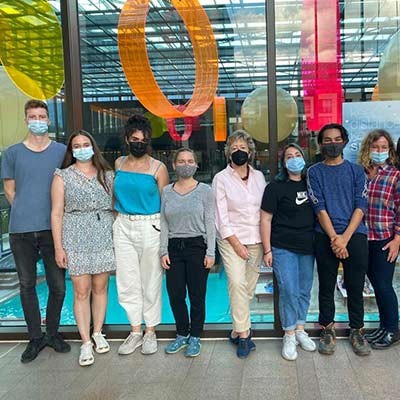 Scenic view of Ha Long Bay
Scenic view of Ha Long Bay
 Rice terraces in Sapa
Rice terraces in Sapa
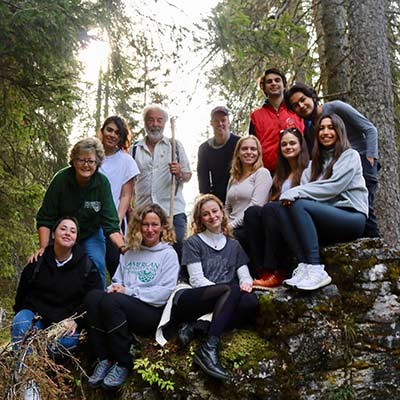 Ancient Hoi An town
Ancient Hoi An town
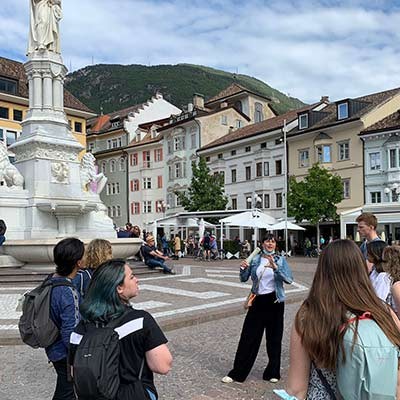 Golden Bridge in Da Nang
Golden Bridge in Da Nang
 Vietnamese cuisine
Vietnamese cuisine
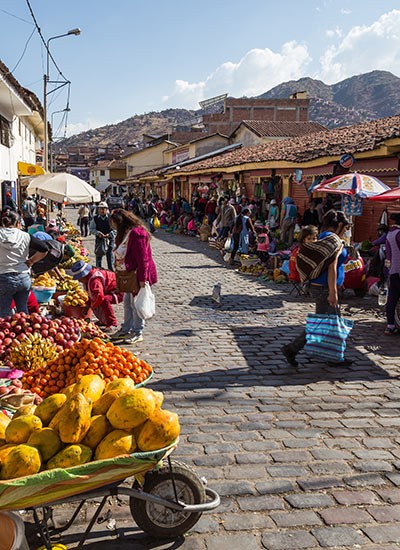 Cultural Performance
Cultural Performance
 Tourism Management Graduate
Tourism Management Graduate
Alt Text: Professional excelling in executive travel management, providing seamless travel experiences.
 Marketing and Advertising
Marketing and Advertising
 Graduate Studies in New York
Graduate Studies in New York
 Logistic Management in Italy
Logistic Management in Italy
 Travel Blogger
Travel Blogger
Alt Text: Students engaging in research methods for travel and tourism, analyzing industry trends.
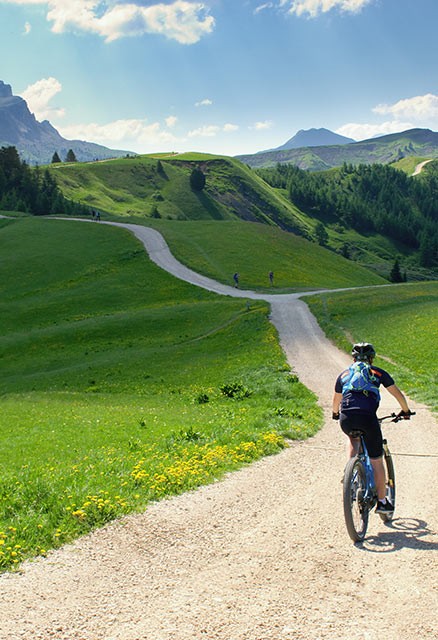 Travel Tourism Strategy
Travel Tourism Strategy
 Destination Marketing
Destination Marketing
 Food Tourism Class
Food Tourism Class
 Cultural Heritage
Cultural Heritage
 Marketing Travel Tourism
Marketing Travel Tourism



